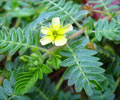Fluctuations in the testosterone levels of male dark-eyed juncos determine whether or not the birds are good dads, a new study has suggested.
Fluctuations in the testosterone levels of male dark-eyed juncos determine whether or not the birds are good dads, a new study has suggested. The study, by Indiana University Bloomington, University of Virginia and University of Southern Mississippi researchers, examined the way in which natural changes in testosterone levels determine how a male bird spends his time.
Previous studies had contemplated that the determination of the male bird’s tendency towards aggression and monogamy might be because of the total amount of testosterone.However, researchers say that the latest findings suggest that it’s a bit more complicated than this. Authors of the current study discovered that its how much and how quickly a male bird’s testosterone levels rise and fall that determines whether he’s going to feed his young or not.
The team found that males whose testosterone levels were more stable were more likely to invest more time and energy in parenting. "This study is one of the first to show for a songbird living in the field under natural conditions that individual variation in the hormone testosterone maps onto variation in aggression and parental behaviour," senior author Ellen Ketterson said.
"Our data also suggest that there is more than one way to be successful at reproduction. Some males may seek mates at the expense of parental behaviour, but other males are doing the opposite. They are being more parental at the expense of aggression. And apparently both ways of being in the world work,” she added.
The researchers believe that males have a certain amount of energy and time that they can invest in finding mates and sticking around to parent their offspring. Under certain conditions, it may be beneficial for male birds to love them and then leave them, maximizing the number of female partners during a mating season. While under certain conditions, it may be in the male junco's best interests to mate with only one female and look after the baby till the time the chick is old enough to fend for itself.
"The results are exciting because they show us how animals that make different choices might differ from each other on a physiological level,” lead author Joel McGlothlin said. “On an evolutionary level, they suggest that there may often be more than one right choice, depending on the circumstances," he added. Ketterson said that there is a link between testosterone and parental behaviour, which needs more study.
Advertisement
As for the reason for the variation in the behaviour, Ketterson says that it may depend upon the environment. "Variation in behaviour may persist because the environment varies. In cold, wet years, or years when lots of predators are attacking young in the nest, good fathers may be more successful at leaving offspring. When food is plentiful and predators are few, males that focus on mating may be more successful. The balance between the two is probably dynamic,” Ketterson said.
Advertisement
Source-ANI
LIN/V










